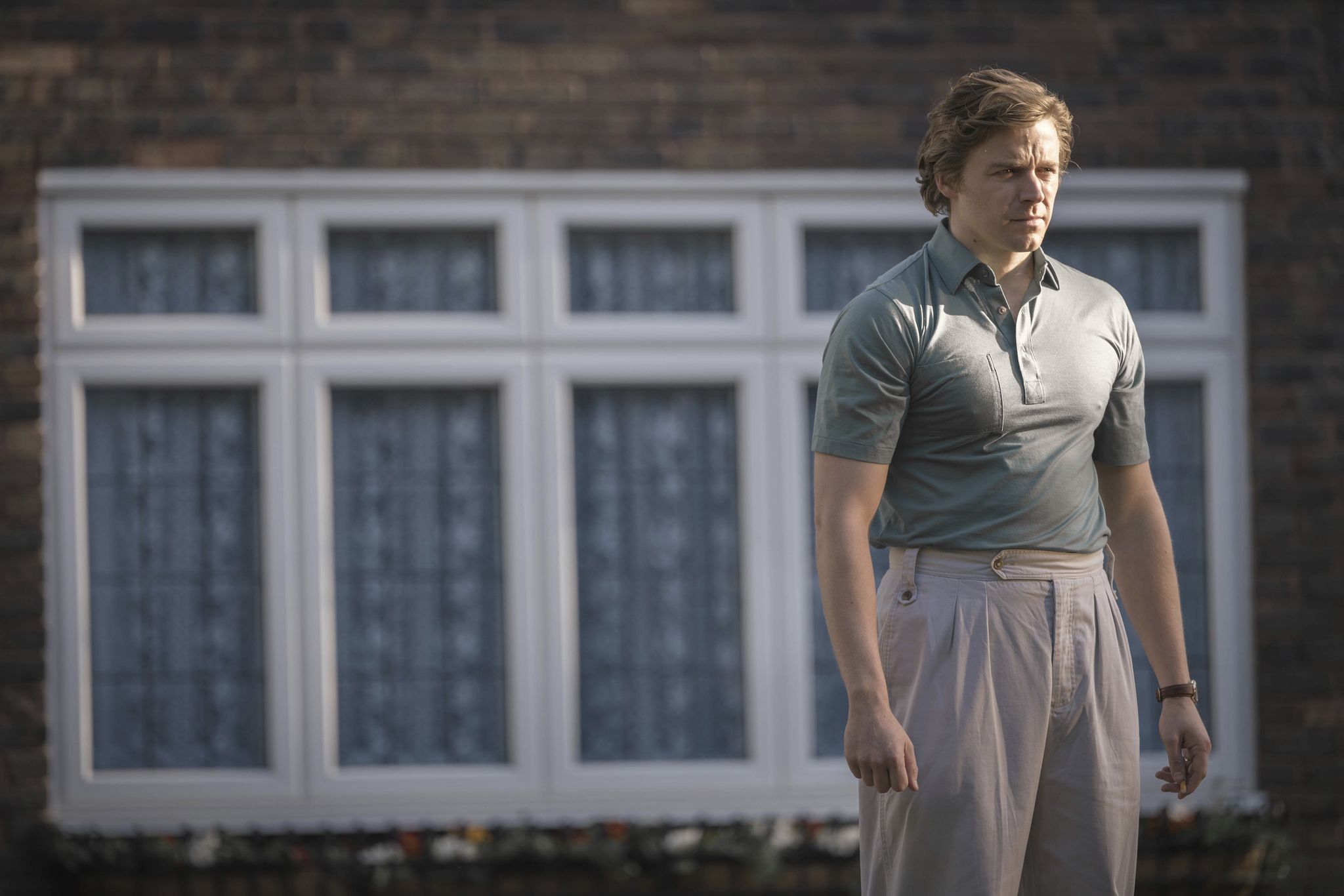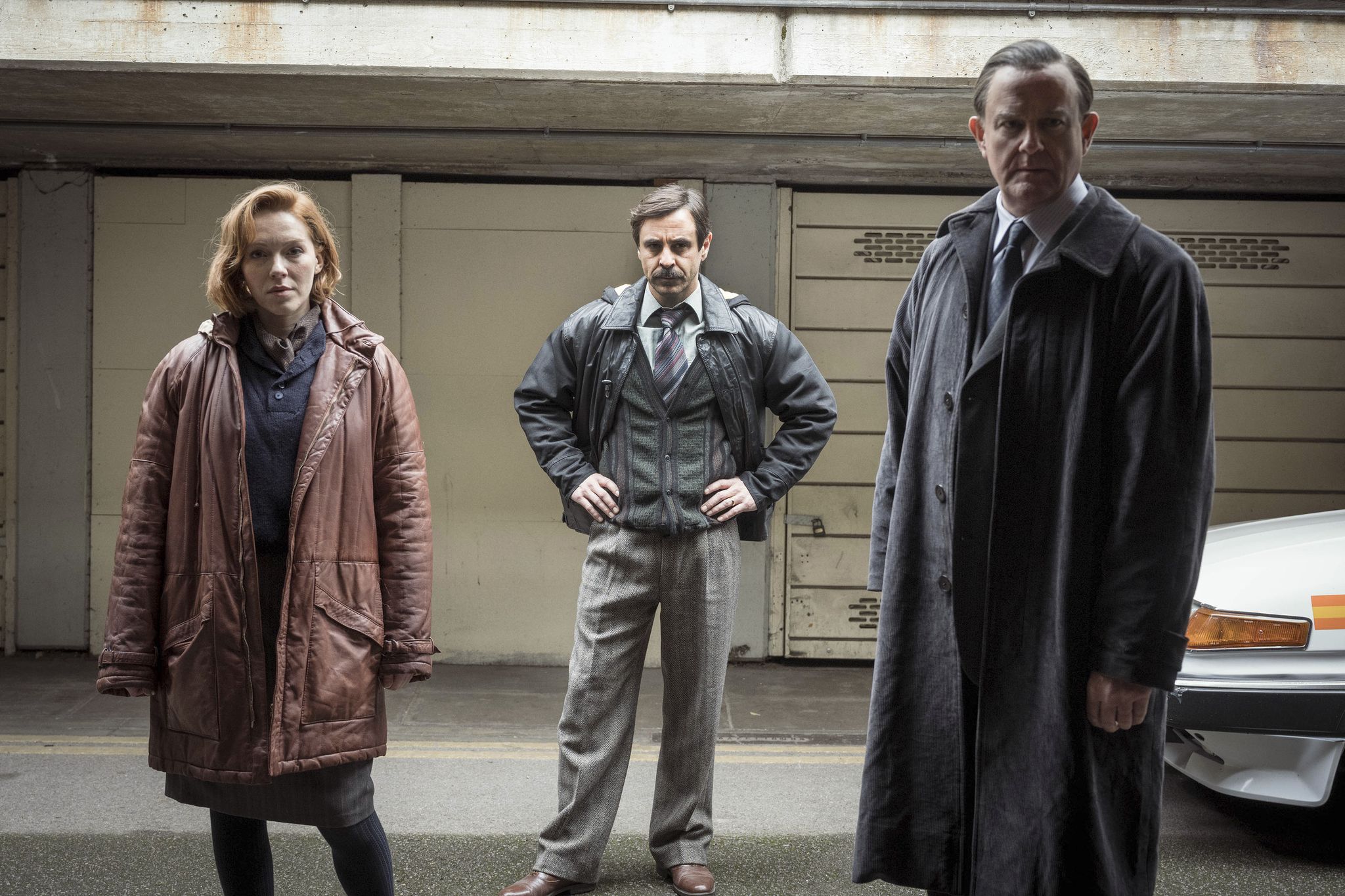British TV drama has been on a hot streak. Sally Wainwright’s Happy Valley set ratings records for the BBC, and rightly attracted worshipful reviews. But it’s by no means the only feature in the homegrown sizzle-reel. British writers including James Graham (Sherwood), Russell T Davies (It’s a Sin), Jed Mercurio (Line of Duty) and Adam Kay (This is Going to Hurt) have all demonstrated that what we used to call terrestrial TV can provide sophisticated entertainment to outperform anything from the increasingly sclerotic streamers. For that matter, Netflix and the prestige American platforms also continue to rely heavily on British and Irish talent: see the works of Sharon Horgan, Peter Morgan, Jesse Armstrong, Armando Iannucci, and Ronan Bennett.
Neil Forsyth’s The Gold extends the BBC’s recent run of winners. It is not, perhaps, the most daring or substantial of all those listed above, but it’s among the most compelling and purely enjoyable: a pacy six-part cops and robbers thriller based on the story of one of the most spectacular British crimes ever investigated, with a classy ensemble cast, muscular direction and a strong script that elevates what could have been, in the hands of a less ambitious crew, a routine Jags’n’slags workout – all shut-it-you-muppets and leave-it-he’s-not-worth-its — into something more layered and interesting.
The set-up is irresistible: in 1983, a gang of armed robbers raided a warehouse on a trading estate near Heathrow, expecting to find around £3m in cash. Instead, they stumbled into the score of a lifetime: £26m, mostly in gold bullion. The news made headlines around the world. The Brink’s-Mat robbery — the name alone is enough to spark excitement in viewers of a certain age, such as your correspondent — became one of the most celebrated cases, and convoluted plots, in British crime history.
Two robbers were quickly caught, but the gold had disappeared, and the money it was turned into went missing, too. Understandably, especially given that precise facts are still disputed or unknown, a deal of artistic licence has been taken with the story of what happened next.
In The Gold, of the three players in the conspiracy on whom Forsyth decides to focus, two are based on real people: west country jeweller John Palmer, later known as “Goldfinger”; and the terrifying Kenneth “I hope you all die of cancer” Noye, who was recruited to fence the gold. The third, solicitor Edwyn Cooper, who helps launder the money, is a composite based, among others, on the lawyer Michael Relton. Similarly, the police officers central to the story are a mix of real-life figures and fictional characters. There’s no attempt to claim strict veracity; if it’s a slightly muddled history lesson you’re after, rather than a streamlined narrative, try Wikipedia.
The Gold, then, has all the hallmarks of a British crime classic: Sarf London geezers with sawn-off shooters; smoky boozers; Ford Cortinas pulling handbrake turns; bespoke-suited mandarins dripping poison in Pall Mall clubs; pencil-skirted molls swearing up a storm; tired-eyed plod staking out the lavish gaffs of hard-faced gangsters. Like the cops, the screenwriters follow the money from Rotherhithe to rural Kent, then on to timeshare Tenerife, even Sierra Leone and Rio de Janeiro.
Far-flung misadventures apart, all this is territory well-trodden by British film and TV, from The Sweeney to its meta update, Life on Mars. No shame in following an ignoble tradition, though, and The Gold profits greatly from its attempts to summon the alchemical atmosphere of 1980s London, the clashes and compromises between hooky upstarts on the make and patrician types keen to maintain their grip on the flow of capital through the capital.
If the show’s attempts to make a generic procedural into a state of the nation address are at times slightly strained‚ with characters repeatedly called on, not always convincingly, to extemporise on the inequities of the English class system, still they nicely set up a portrait of a rotten society made up of (at least) three interdependent tiers: the Establishment, the criminal underworld, and a shadow society of bent coppers, corrupt lawyers and illegitimate businessmen who glide between the two. It’s a London of old money, new money, and dodgy money, and few are those who can tell any of it apart. (The crucial role of the Freemasons — persuasively represented by Sean Miller’s nasty DI Carter — is fascinating, and one could imagine a different show devoted solely to that toxic organisation.)
Jack Lowden, who I thought a little puppyish for Apple TV’s Slow Horses, makes a decent fist of the repulsive Kenneth Noye, without perhaps ever quite capturing the true menace of one of Britain’s most notorious villains. Hugh Bonneville (Paddington’s dad) is the unimpeachable DCI Boyce, leader of the task force assembled to solve the crime. Dominic Cooper, of Mamma Mia fame, is adept at suggesting the turmoil beneath the smooth surface of the crooked brief, to the degree that one wishes other characters could refrain from spelling out his motivations quite so clearly. Tom Cullen gives a subtle and intelligent performance as the cunning Brummie gold dealer. Sean Harris is reliably frightening as the hooky property developer Gordon Parry, another real-life figure, who dreams of building an empire in the abandoned Docklands with the proceeds of the robbery.
One thing in favour of all the wrong’uns on display: according to The Gold, each was supported by a strong, resourceful woman (sometimes women), equal parts brave and strikingly attractive. Implausible as this might seem, at least it offers good roles to some fine actors: Ruth Bradley as Cooper’s to-the-manor-born wife, Isabelle; Ellora Torchia as his estate agent girlfriend; Nichola Burley as Brenda Noye; Sophia La Porta as Kathleen, girlfriend of gunman Micky McAvoy (Adam Nagaitis); most indelibly, Stephanie Martini as Marnie Palmer, a no-nonsense bottle blonde with a disarming Bristol brogue.
But the stand-out performance in The Gold comes from Charlotte Spencer, who plays the show’s most fully realised character, DC Nicki Jennings, a forthright and courageous young detective with a background as hard-knocked as those of any of the men she is hunting. Spencer plays Jennings with great wit and style. If he and her colleagues’ faultless commitment to the pursuit of justice occasionally threatens to distract from the depiction of a Met Police otherwise up to the tip of its helmet in malfeasance then the ending of The Gold, with its suggestion that perhaps, after all, crime really does pay, is one to cherish.
The Gold is on BBC iPlayer now.














